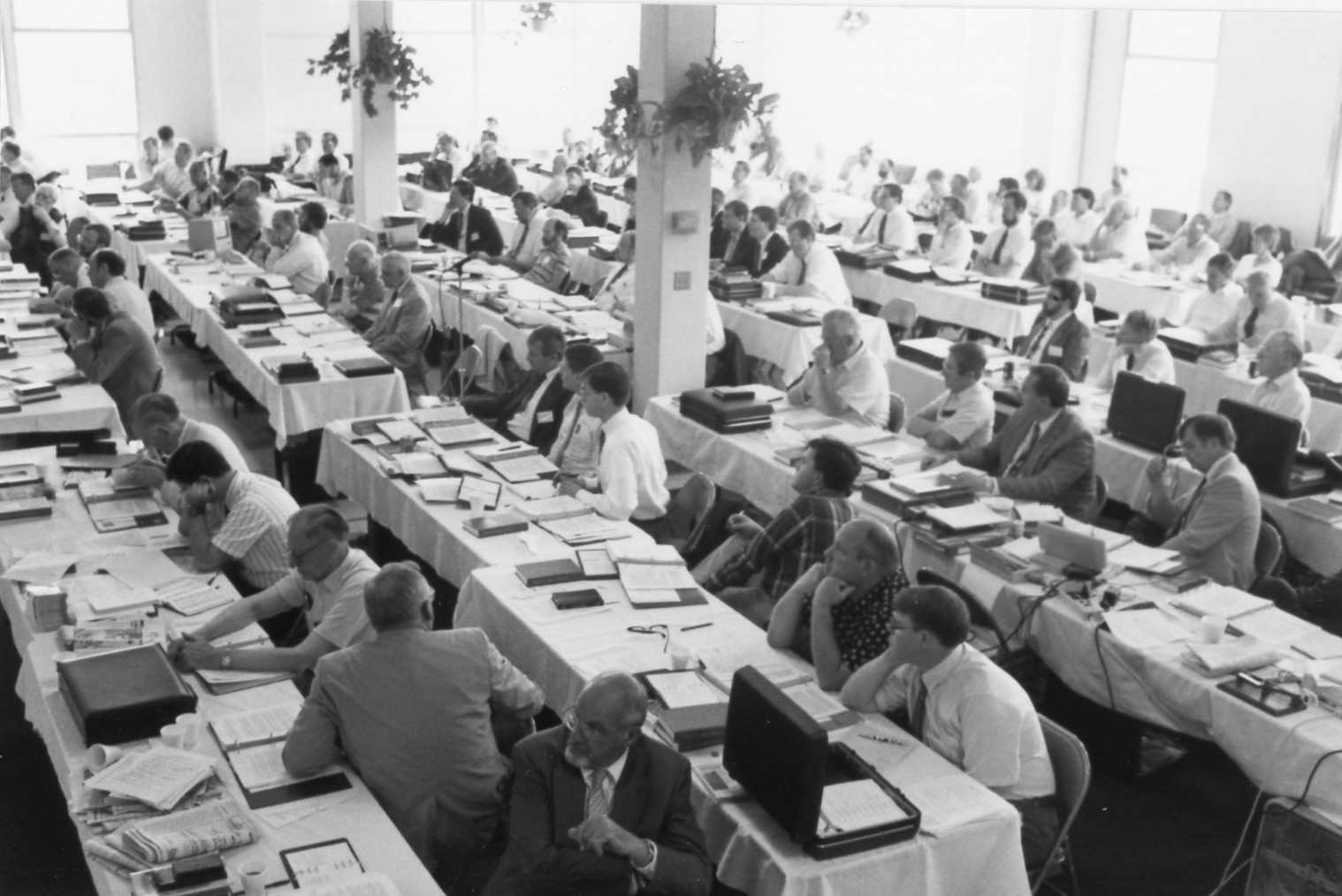At the 60th OPC General Assembly, meeting at Geneva College in 1993, the Assembly debated the propriety of a law suit that the Presbytery of New Jersey filed against the state of New Jersey in the previous year. The Presbytery sought religious exemption from new civil rights protections for homosexuals. Its fear was that the new law might regard preaching against homosexuality or fencing the table from practicing homosexuals as illegal in the state. After 45 minutes the Assembly debate concluded when the "question was called," and a two-thirds majority supported the procedural motion to end to discussion and come to an immediate vote. Cutting off debate when commissioners are still rising to speak, while permissible in Robert's Rules of Order, is traditionally frowned upon in the OPC as violating the spirit of a deliberative assembly. Some commissioners, concerned both about the substance of the debate and its premature conclusion, filed a protest that was recorded in the Assembly minutes. The protest read:
"The undersigned protest the cutting off of debate by the assembly on Recommendation 2 from the Committee on Presbyterial Records, regarding Overture 8. Not only did this action counter the generally followed OP practice of not cutting off debate, it ended debate on a matter that some judge has the potential for changing the direction and character of the Orthodox Presbyterian Church.
"Historically, the Orthodox Presbyterian Church has been committed to an indirect approach in its relationship to the state. Not that the Orthodox Presbyterian Church on occasion has failed to address the state by way of ”humble petition.” However, the recent lawsuit pursued by the Presbytery of New Jersey of the Orthodox Presbyterian Church, in that it has involved the whole of the church and could very well serve as a bellwether in the church’s future, reflects the influence of lines within Presbyterianism at variance to our own historic position. These lines can be identified with the dissenting tradition of the Covenanters and the political activism of both New School Presbyterianism and fundamentalism. Characteristic of these diverse lines is their common commitment to a direct and even aggressive approach to the state. Neither [J. Gresham] Machen nor the large majority of the Orthodox Presbyterian Church’s founders had sympathy for such a perspective and judged it out of accord with the proper emphases of biblical Christianity.
"Pressures for our church to move contrary to the commitment of our founders will only increase. Society exerts greater and greater influence on us and creates in us and for us the very opposite of what we imagine; i.e., we become politicized and sociologized. Specifically, we are cast in the role of a minority concerned to insist upon our rights, thus diverting us from our true task and confusing us in our true calling."
The signers of the protest were Charles G. Dennison (who authored the protest) along with Randall A. Berquist, Everett C. DeVelde, Donald J.Duff, William J. Gorrell, John R. Hilbelink, Glenn D. Jerrell, R. Daniel Knox, A. M. Laurie, Steven F. Miller, Jack J. Peterson, Richard A. Shaw, and Earl E. Zetterholm.
Picture: The 60th GA in session in the Skye Lounge on the Geneva College campus.

© 2026 The Orthodox Presbyterian Church